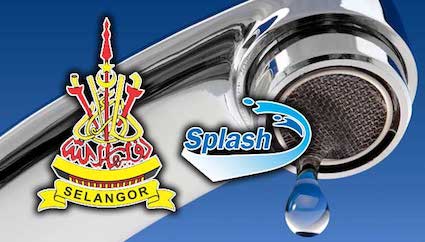Selangor water restructuring and cost impacts

THE GREEN EQUILIBRIUM
IT is always wise to leave politics out of utilities services like electricity and water. This is mainly because it is government’s responsibility to provide these services to consumers. Unfortunately, some form of privatisation has caused rise in cost of these utilities. It is time to make it right. National Water Services Industry Restructuring (NWSIR) is to ensure water services that includes water treatment, water supply and sewerage is managed to provide better services with world class benchmarking while managing it with lowest cost possible.
Let’s dissect the recent restructuring exercise in Selangor (including Kuala Lumpur and Putrajaya).
Concession agreements are already a bloated cost method deployed to treat and supply water. Under NWSIR, we want to end it and save cost. One time book value (or net book value) is used to estimate the value of the assets. It is the same method used by Pengurusan Aset Air Bhd (PAAB). Any evaluation based on current asset value will not represent cost savings as the concession agreement is already a bloated cost method. In addition to that, during a takeover process, liabilities of the concession holders will also be absorbed.
There are savings to water tariff from cancellation of concession agreements:
> Cancellation of concession agreement will stop bulk rates charges for treated water supply to the supply company. It will also stop the Syabas’s concession agreement based tariff calculation. These are immediate huge savings.
> Operation of these companies will allow cost saving in operation and procurement.
> Settling the “legacy” liabilities by restructuring the debt will save cost as the concession holders get their financing using normal financing method which is costly.
There are cost increases to water tariff:
> Due to PAAB’s borrowing to restructure the concessionaires, Air Selangor has accumulated new debt and these will be paid via leasing fees which will be collected via water tariff.
> The cancellation of concession agreement will also cause change in Non-Revenue Water (NRW) calculation. The NRW calculation is based on treated water input into the supply system. The concession agreement NRW calculation is lesser than actual NRW. Awer warned SPAN on issues related to usage of the concession agreement NRW calculation method against actual engineering NRW method many years ago. More allocation will be needed via PAAB to fund new NRW projects.
> Langat 2 Water Treatment Plant, Pahang-Selangor raw water transfer tunnel and the raw water charges by Pahang state government is estimated to give cost impact between 18.72 sen per cubic metres and 22.72 sen per cubic metres once it is operational by end of 2019.
> The operational cost per unit of treated water from treatment to supply has increased since the last water tariff review for Selangor, Kuala Lumpur and Putrajaya in 2006.
Based on a September 2015 statement from PAAB, the takeover costs for Puncak Niaga, Konsortium Abass and Syabas is RM 1.68 billion and liabilities are RM1.35 billion, RM0.95 billion and RM3.82 billion respectively. The Splash takeover is RM2.55 billion and it does not include liabilities. In the same statement, PAAB reported Splash’s liabilities were at RM1.58 billion in 2015. The cost of concessionaires takeover in Selangor is now valued at RM10.35 billion and this does not include the amount of Splash’s liabilities that will be absorbed by Air Selangor.
This RM10.35 billion is estimated to impact the water tariff between 33.17 sen per cubic metres and 35.86 sen per cubic metres with a 30% NRW. This impact was calculated based on PAAB’s financing cost between 4% and 4.5%. Therefore, if a fair and transparent water tariff setting is carried out, Selangor will see a single digit percentage increase in water tariff. Awer hopes SPAN will not resort to an uninspiring cost plus tariff review after 10 years in operation.
This article was contributed by Piarapakaran S., president of the Association of Water and Energy Research Malaysia (Awer), a non-government organisation involved in research and development in the fields of water, energy and environment.

